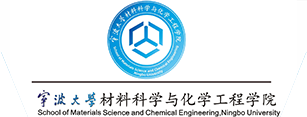报告时间:2023-11-03,星期五,下午15:00-17:00
报告地点:北校区1号实验楼227会议室
报告人:Prof. Feng-Shou Xiao (肖丰收)
报告人简介:
Prof. Feng-Shou Xiao received his B.S. and M.S. degrees in the Department of Chemistry, Jilin University, China. From there he moved to Dalian Institute of Chemical Physics, China for Ph. D. research, then to the Catalysis Research Center, Hokkaido University, Japan, where he was involved in collaborative research between Dalian Institute of Chemical Physics & Jilin University, China with Hokkaido University, Japan. He was a Ph.D. student in Dalian for one year and in Sapporo for two years. In 1990, he was awarded his Ph.D. degree at Jilin University. After postdoctoral work at the University of California at Davis, USA, he joined the faculty at Jilin University in 1994, where he became a full professor in 1996 and distinguished professor in 2003. Since the end of 2009, Dr. Xiao as a distinguished professor has moved to Department of Chemistry, Zhejiang University. In 2021 April, he went to College of Chemical and Biological Engineering, Zhejiang University. Currently, he is an associate editor of Industrial & Engineering Chemistry Research, also serving as secretary of the Asia-Pacific Association of Catalysis Societies. His research is mainly focused on zeolites and catalysis. He has more than 500 peer-reviewed papers, over 30000 citations, H index of 88, ~ 100 granted patents, and over 50 plenary and keynote lectures at international conferences.
报告摘要:
Zeolites have been widely used as heterogeneous catalysts in the petrochemical and fine chemical industry, but their syntheses are not sustainable because of the use of costly and toxic organic templates and a huge amount of water under hydrothermal conditions. In our recent works, it is focused on sustainable routes for the synthesis of zeolites, including (i) organotemplate-free, (ii) solvent-free, and (iii) combing organotemplate-free and solvent-free approaches to synthesize zeolites. In these cases, both organic templates and a large amount of polluted waste could be effectively avoided in industrial applications. Such a concept has shown to be versatile for the highly efficient and sustainable synthesis of FAU, MOR, SOD, MTN, CHA, MFI, and *BEA zeolites. More importantly, the zeolite obtained from the green strategies preserves their framework integrities and thus delivers superior hydrothermal stability and catalytic activity toward important industrial reaction processes. The green synthesis strategies also find use in the construction of defect-free zeolite molecular sieve membranes by omitting the calcination step.
欢迎广大师生踊跃参加!

